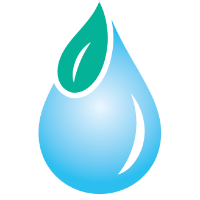Daugherty Water for Food Global Institute

Daugherty Water for Food Global Institute: Faculty Publications
Date of this Version
9-7-2023
Document Type
Article
Citation
Agricultural Water Management 289 (2023) 108506. https://doi.org/10.1016/j.agwat.2023.108506
Abstract
Water, energy, and food are linked in intricate ways in irrigated agriculture and understanding the interplay of these components is crucial for sustainable and profitable crop production, particularly in smallholder setting such as in sub-Saharan Africa. This study evaluates water-energy-food linkages, engineering and economic performance, irrigation decision making, and challenges faced around water management in a community-based mechanized irrigation scheme in Rwanda. The research is the first to analyze such as scheme, which uses technology typically used by large farmers in a smallholder setting. The study investigates the variation in water requirements and the relationship and impacts of this variability on crop yield for the crops grown in the scheme: maize, French beans, and dry beans. Observed irrigation decision-making analyses demonstrate a lack of irrigation planning during growth stages and significant field-to-field variation in irrigation; this is linked to yield reduction in major crops. Results suggest that farmers irrigated only 31% of modeled irrigation water in dry beans and 27% of modeled irrigation water in maize. An econometric model assessment is used to understand the relationship between yield and energy inputs. A related policy analysis considers the impacts of changes in crop and water management on field-level profits and system-level financial sustainability. This study has implications for understanding irrigation policies in the context of the water-energy-food nexus and decision-making in Sub- Saharan Africa.
Included in
Environmental Health and Protection Commons, Environmental Monitoring Commons, Hydraulic Engineering Commons, Hydrology Commons, Natural Resource Economics Commons, Natural Resources and Conservation Commons, Natural Resources Management and Policy Commons, Sustainability Commons, Water Resource Management Commons


Comments
Open access.